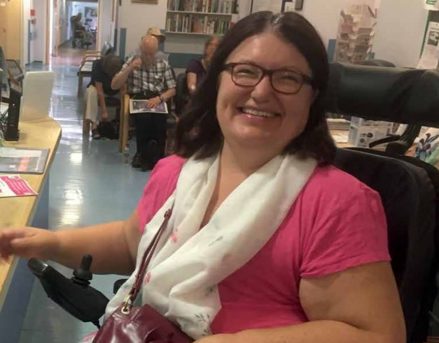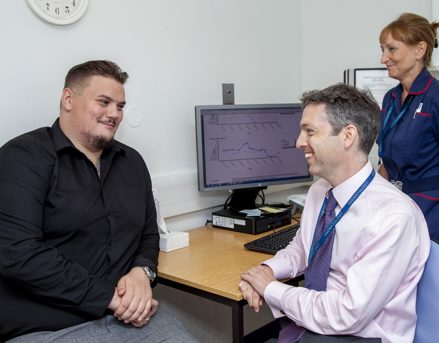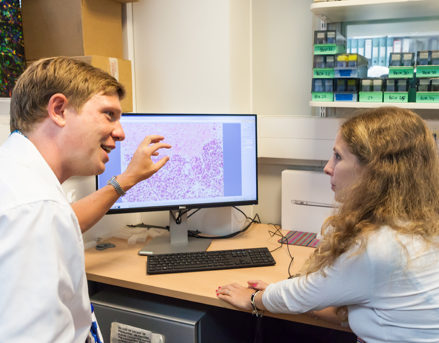Annual report 2017–2018
Our annual report 2017–18 showcases the important projects and initiatives the College has supported over the past year. We take a look at our activities in and outside of the UK, explore our efforts to engage and influence both the public and key political stakeholders and meet an array of award-winning members.
We also hear from several of our members about the extraordinary projects they're working on. From veterinary pathologists trying to save an endangered descendent of the woolly mammoth, to a trainee histopathologist investigating the genetic causes of childhood cancers.
Incredible stories
Our annual report features a number of interviews with doctors, patients – and vets – that demonstrate the fundamental role pathology plays in healthcare for humans and animals. Find out more.
-
Dr Cate Wight: Doctor and patient
Dr Cate Wight is a histopathologist working in Kent. She has over 20 years’ experience in pathology. Here she reflects on how her personal experience of being diagnosed with cancer has affected her medical practice.
-
Dr Ben Uttenthal: Treating acute myeloid leukaemia
After being diagnosed with leukaemia aged 22, Alfie had to undergo a number of life-saving treatments for him to survive. Dr Ben Uttenthal tells Alfie's remarkable story.
-
Dr Henny Martineau: Trying to save the Saiga
Working as part of a global team, veterinary pathologist Dr Henny Martineau has been investigating the cause of mass deaths in herds of saiga antelopes in Kazakhstan.
-
Dr Matthew Clarke: A trainee’s experience
Histopathology trainee Dr Matthew Clarke took a while to settle on pathology as a career. However, after training initially as a surgeon, he fell in love with histopathology and hasn't looked back.






